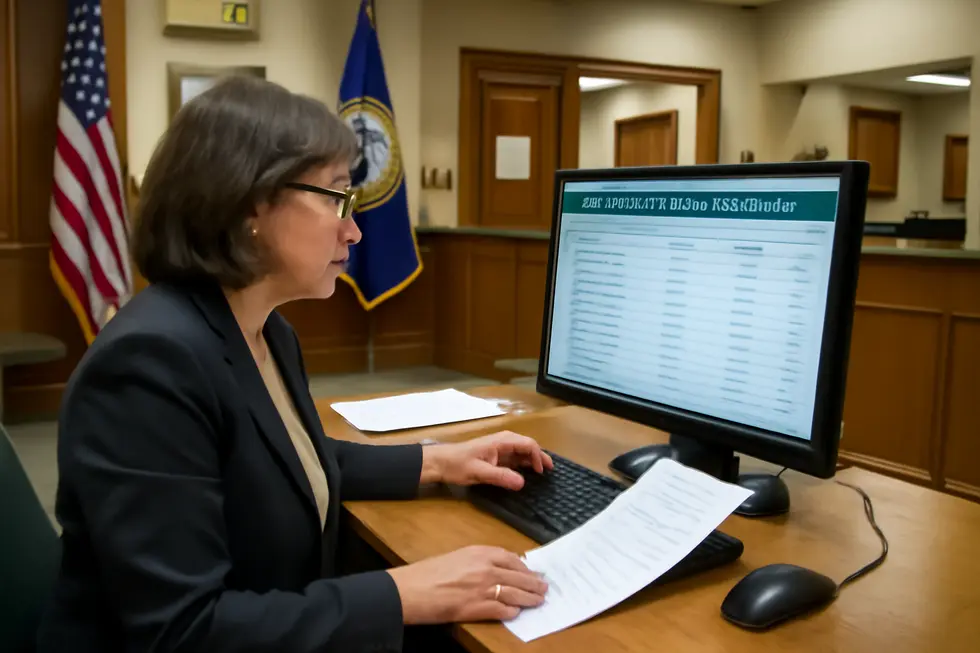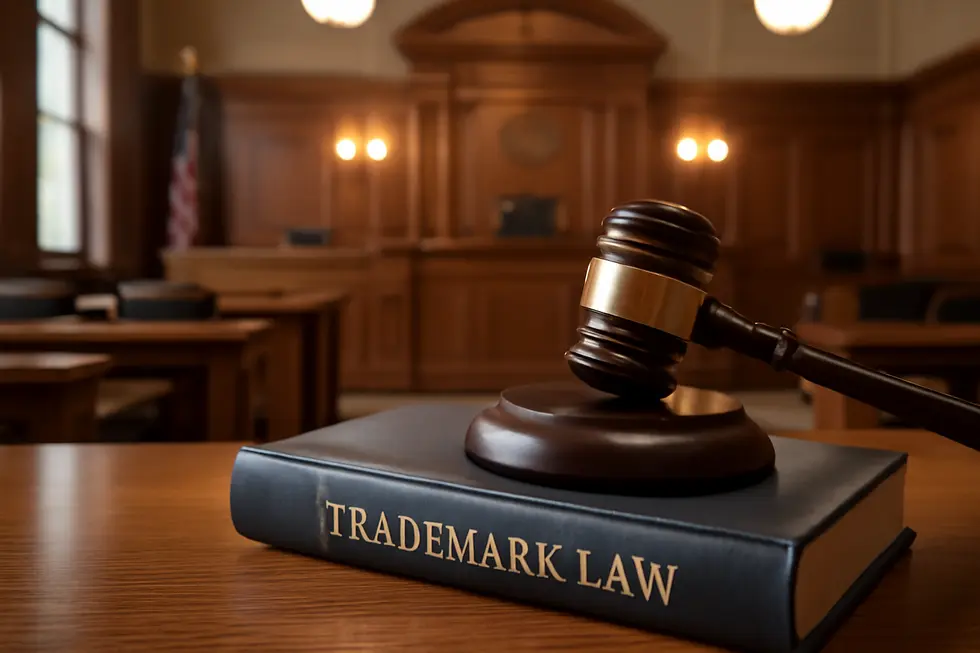Introduction
Choosing the right name for your business is a crucial step that impacts branding, legal security, and market identity. However, a common question that arises during this process is whether you can use the same business name as another company. Naming conflicts can lead to registration rejections, consumer confusion, and costly legal battles. This discussion unpacks the multifaceted rules surrounding business name duplication, starting with state business registration requirements that usually demand unique names within the same jurisdiction. It then examines how DBA (Doing Business As) and assumed names operate differently, allowing more flexibility yet still carrying risks. Finally, it addresses the powerful role federal trademark law and common law rights play in nationally safeguarding business names. Together, these perspectives will equip you to make informed decisions about naming your business while minimizing potential conflicts.
Tables of Contents
Chapter 1: State Business Registration Rules on Whether You Can Name Your Business the Same as Another
- Navigating Distinguishability Standards and Name Availability Checks in State Business Registrations
- Navigating State Registration and Federal Trademark Protections: How Business Name Conflicts Are Resolved Across Jurisdictions
- Navigating DBA Registration and State Requirements for Unique Business Names
Chapter 2: DBA and Assumed Names in Relation to Naming Your Business the Same as Another
- Understanding the Legal Boundaries of Using DBA and Assumed Names Shared with Other Businesses
- Navigating Trademark Risks and Name Availability When Using DBAs and Assumed Names
- Navigating DBA Registration and Liability When Sharing a Business Name
Chapter 3: Federal Trademark Law and Legal Implications of Naming Your Business the Same as Another
- Navigating Federal Trademark Protection: How It Shields Your Business Name Nationwide
- Navigating Trademark Infringement Risks and Preventing Consumer Confusion When Naming Your Business
- Navigating Trademark Coexistence and Multiple Business Names Without Legal Fallout
Chapter 1: State Business Registration Rules on Whether You Can Name Your Business the Same as Another

1. Navigating Distinguishability Standards and Name Availability Checks in State Business Registrations
When choosing a business name, state registration offices enforce strict distinguishability standards to prevent marketplace confusion and protect consumers. Generally, you cannot register a business name that is identical or deceptively similar to an existing name already on file within the same state. This means your chosen name must be unique enough to avoid confusion in spelling, phrasing, or designators such as “LLC” or “Inc.” that indicate the business structure.
Each state has its own particular rules, but most require businesses—especially limited liability companies—to include appropriate identifiers like “LLC,” “L.L.C.,” or the spelled-out form “Limited Liability Company.” Corporations and other entities follow their own suffix conventions. Beyond these formal designators, states often restrict certain words like “bank” or “insurance” unless you meet special licensing requirements.
To verify the availability of your desired name, the first essential step is to perform a name search on the state’s official business registry website, typically managed by the Secretary of State’s office. This database allows you to check if any existing businesses have the exact or confusingly similar name. It’s important to be thorough; even minor variations or close similarities can lead to rejection.
If your preferred name is available, you may have the option to reserve it. Name reservation holds your claim to the name for a limited period—usually between 30 and 90 days—while you prepare your formation documents. This service often requires a small fee and safeguards your brand from being taken by others during the interim.
Once the name is secured and deemed distinguishable, you proceed to filing your formation documents, such as Articles of Organization for an LLC. The state will review the name again at this final stage to confirm compliance before registration is completed.
While this process ensures uniqueness within the state registry, it does not guarantee protection beyond that jurisdiction. It is strongly advised to complement your search with a federal trademark search through the U.S. Patent and Trademark Office (USPTO). Trademark registration provides broader nationwide rights and can prevent others from using the same or confusingly similar business names in related industries. Common law trademark rights, arising from the actual use of a name in commerce, offer additional localized protection.
Finally, consider domain name availability as a critical element of your brand identity. The web domain registration is separate from legal naming but crucial for consistent business visibility online.
By carefully adhering to state distinguishability requirements, conducting comprehensive name and trademark searches, and reserving your name if possible, you minimize the risk of rejection and costly future disputes. This approach lays a solid foundation for legal compliance and effective brand protection.
For more detailed guidance on trademark considerations alongside business registration, explore resources such as https://trademark2go.com/do-i-need-a-trademark-for-my-business/.
To review exact state-specific rules and search tools, consult the Secretary of State office where you plan to register your business.
2. Navigating State Registration and Federal Trademark Protections: How Business Name Conflicts Are Resolved Across Jurisdictions
State business registration rules are designed to prevent identical or deceptively similar business names within the same jurisdiction. When you file a business name with a state agency, the name must be unique to that state’s registry. This helps avoid local confusion and protects existing businesses by rejecting applications that conflict with names already recorded. However, this protection is limited geographically. The registration office’s review process only compares your proposed name against the state’s database, and it does not include checking federally registered trademarks or unregistered, common law trademarks used in commerce.
Because of this, it is possible for two businesses to register the same name in different states, as long as there is no conflicting trademark registered federally. But a statewide business registration does not grant nationwide exclusivity or intellectual property rights. It simply secures your right to operate under that name within that state’s boundaries.
The broader and more powerful layer of protection over business names comes from federal trademark law. The United States Patent and Trademark Office (USPTO) administers this system. A federally registered trademark grants its owner exclusive rights to use that mark nationally, but only in connection with the specific goods or services for which it is registered. This national scope means a federally protected name blocks others from using identical or confusingly similar names anywhere in the country, regardless of any state-level registrations.
This fundamental difference creates an important dynamic: a business can hold a state registration for a name, but if another party federally owns a trademark for that name in the same industry, the state-registered business risks legal challenges including infringement claims. Federal trademarks provide enforceable remedies against unauthorized use that can extend beyond simple rejection of registration filings.
Moreover, businesses often use assumed names or DBAs (“doing business as”) to operate under names different from their legal registered name. State rules may allow multiple DBAs even if the underlying legal names differ, but these assumed names do not confer trademark rights or nationwide exclusivity beyond the state’s registration. Thus, a DBA may be registered locally but still infringe federally protected trademarks.
For entrepreneurs, understanding this dual system is crucial. Registering a business name with your state is an important first step to ensuring local name availability. However, it should be supplemented by a thorough trademark search through the USPTO’s database and consideration of common law trademarks—which arise from actual use in commerce and also have legal weight, though limited geographically.
States like Vermont illustrate the point well: their business name registration ensures uniqueness locally but expressly does not override federal trademark protections. Ignoring this can lead to costly disputes even if a business name was validly registered with the state.
In summary, state registration protects your business name within your state to prevent duplicates, but federal trademark law protects brand identity nationwide and affords stronger rights. Naming a business therefore requires careful navigation of both systems to avoid conflicts and secure your name fully without risking infringement.
For more on determining if you should trademark your business name beyond state registration, consider reviewing whether you need a trademark for your business.
External reference: https://trademark2go.com/
3. Navigating DBA Registration and State Requirements for Unique Business Names
When registering a business, a primary requirement across nearly all states is that the business name must be unique within that jurisdiction. This rule applies to the formal legal name used during entity formation, such as when creating an LLC or corporation. States enforce this to prevent confusingly similar names that might mislead consumers or dilute brand identity. While this principle straightforwardly restricts identical legal business names, the situation becomes more complex when dealing with assumed or “Doing Business As” (DBA) names.
A DBA is an alternate name under which a business operates or markets itself, distinct from its registered legal name. Many businesses choose DBAs to better reflect brand identity, reach different markets, or launch product lines without forming new legal entities. However, DBA registration and naming rules vary significantly across states. Some states require DBAs to be registered locally, often through county clerks or municipal offices, while others handle them at the state level. This decentralization affects how name uniqueness is enforced.
For example, certain states like California require LLC and corporation legal names to be unique statewide; no two registered entities can share the same name regardless of industry. However, California’s DBA registrations are local and not exclusive statewide. This means two different businesses can file the same DBA name in separate counties. Although legally permissible, such overlaps can create brand confusion and may be contested if one party holds trademark rights. Thus, while state business registries aim to reduce confusion via unique legal names, DBA names enjoy more flexibility—yet less guaranteed exclusivity.
Before assigning a DBA or legal business name, conducting a thorough name search is crucial. Most states provide searchable databases via their Secretary of State or local clerk websites to verify if a name is already taken or deceptively similar. This step helps avoid application rejections and potential legal disputes. Even if a DBA name technically passes the state’s registration check, consulting trademark databases and assessing existing trademarks is wise to ensure broader protection and minimize infringement risk. Trademark rights often supersede state DBA registrations by providing exclusive nationwide or localized control over a business name.
It is also important to understand that a single legal business can file multiple DBAs. This practice enables diversified branding strategies without creating multiple entities. Yet, each DBA usually requires registration following the state’s or locality’s rules. Failure to register a DBA when required can lead to penalties or limit enforceability of rights associated with that name.
Ultimately, while state registration offices mandate uniqueness for legal business names to protect consumers, DBA names fall into a gray area where name overlaps can occur, especially across different localities. Businesses seeking to secure exclusive rights to a name should consider trademark registration, which overrides the lesser protections afforded by state DBA filings. For more guidance on the interplay between DBAs and trademark protections, exploring expert resources like do I need a trademark for my business? can provide insightful information.
For practical steps on ensuring your desired business or DBA name is available in your state, consult official resources such as the Secretary of State’s website or the helpful guide on conducting a thorough name search here. This approach shields your brand from conflicts and paves the way for successful business formation and growth.
Chapter 2: DBA and Assumed Names in Relation to Naming Your Business the Same as Another

1. Understanding the Legal Boundaries of Using DBA and Assumed Names Shared with Other Businesses
Operating a business under a name different from its legal registered name is a common practice, facilitated through the registration of a DBA (Doing Business As) or assumed name. While these fictitious names enable branding flexibility, they exist within a legal framework that does not guarantee exclusive ownership or protection. This distinction is crucial to grasp when considering naming your business the same as another’s, especially under the umbrella of DBA or assumed names.
A DBA or assumed name is essentially a trade name that allows a business—whether a sole proprietorship, partnership, LLC, or corporation—to conduct operations under a name other than the entity’s official registered title. This registration process varies by state and often involves filing paperwork with the Secretary of State or local authorities and sometimes publishing a public notice. Despite these formal steps, registering a DBA does not form a separate legal entity nor does it shield the business owner from liability.
When it comes to name uniqueness, DBAs are typically subject to less stringent rules than formal business names. Many states do not require assumed names to be unique across all businesses, permitting multiple entities—even within the same industry—to register the identical DBA. This scenario can create confusion but remains legally permissible because DBA registration does not confer trademark rights or legal exclusivity. Therefore, you may find businesses in the same locality openly operating under the same DBA names without formal disputes arising solely from the filing.
However, this permissiveness carries notable limitations. While sharing a DBA name is often legally feasible, it offers no safeguard against confusion in the marketplace or potential reputational harm. Unlike trademarks, which grant exclusive nationwide rights within specified goods or services, DBA registrations merely authorize the business to present a certain name publicly. Without trademark protection, a business cannot prevent others from using a confusingly similar or identical DBA and may face challenges in enforcing its brand identity.
Renewal and compliance with DBA registration requirements vary among states. Some require periodic renewals—such as every ten years in Texas—and failure to comply could result in penalties or losing the entitlement to use the assumed name. Despite these administrative controls, no state generally prohibits duplicative DBAs outright.
Because DBAs lack exclusivity, businesses seeking stronger legal protection should explore trademark registration. Trademark law grants the right to prevent others from using the same or confusingly similar names nationwide within the relevant commercial fields. These rights can stem from federal registration or common law use, providing more robust defense mechanisms than state DBA filings can offer. For deeper insight into when and why a trademark is necessary, consult expert resources that explain the trademark process and protections in detail.
In practice, businesses should carefully assess the implications of using a DBA name already in use by another entity. Though registration systems might not block the duplication, the risks of consumer confusion, dilution of brand identity, and potential legal challenges associated with trademark infringement remain important considerations. Ultimately, naming your business the same as another’s DBA is possible but requires strategic evaluation alongside trademark investigation.
For more comprehensive guidance on how trademarks interplay with business names and DBAs, reviewing authoritative trademark information can clarify when exclusive protection is advisable. For example, the nuances of DBA naming and its limited legal safeguards are well explained in state-specific resources such as those outlining Texas’s approach to assumed names and renewal obligations.
Source: https://www.easocialmedia.com/complete-guide-to-doing-business-as-filing/
2. Navigating Trademark Risks and Name Availability When Using DBAs and Assumed Names
Registering a DBA (Doing Business As) or an assumed name is a common way for businesses to operate under a different moniker than their legal entity, offering branding flexibility without forming a new company. However, it’s critical to understand that DBA registration alone does not grant you exclusive rights to that name. Unlike business entity names that must be unique within a state’s registry, DBAs can often be shared by multiple businesses, sometimes even within the same jurisdiction. This lack of exclusivity means that simply registering a DBA does not prevent others from using the identical or similar name, which can lead to customer confusion or disputes.
This is where trademark law plays a pivotal role. Trademark rights, whether federally registered or established through actual commercial use (common law rights), provide stronger protections for a business name. A federally registered trademark gives nationwide priority to the holder in connection with specific goods or services. Consequently, even if you have a DBA registered locally, you could face a trademark infringement claim if your business name or DBA conflicts with an existing trademark holder’s rights. This risk underlines the importance of conducting thorough name availability searches that extend beyond state databases.
State business registration offices generally require a business or LLC name to be distinguishable from others already registered in the state. Yet, for DBAs, many states are more lenient, allowing the same fictitious name to be used by multiple businesses. Despite this, the presence of a registered or common law trademark on that name supersedes state DBA filing and can result in legal challenges such as cease-and-desist demands or costly litigation. Simply put, DBA registration is not a substitute for trademark protection.
Ensuring the name you want to use does not infringe on another’s trademark rights involves careful research. This process includes checking your state’s business registry for conflicting entity names, searching the local DBA filings, and reviewing the United States Patent and Trademark Office (USPTO) database for federal trademarks. Ignoring this step might lead to substantial business disruption, forced rebranding, or monetary damages. Businesses aiming for strong brand ownership should consider pursuing trademark registration alongside DBA filing to secure exclusive rights and deter competitors from using confusingly similar names.
While DBAs facilitate marketing and operational versatility, they offer limited legal safeguards. Awareness of both state-level naming rules and federal trademark law is essential when naming a business the same as another, especially within overlapping industries or geographic markets. When uncertainty arises, consulting with trademark professionals and leveraging comprehensive resources can help avoid costly mistakes and protect your brand’s integrity.
For more in-depth guidance on conducting name availability checks and understanding the relationship between trademarks and DBAs, you may find helpful information at Do I Need a Trademark for My Business?.
3. Navigating DBA Registration and Liability When Sharing a Business Name
When considering naming your business the same as another, understanding the intricacies of registering a DBA (Doing Business As) or assumed name is essential. This process involves verifying the availability of the desired name and formally filing it with state or local offices—but it does not create a new legal entity nor affect liability protections by itself.
The first step in registering a DBA is to conduct a thorough name search through your state’s Secretary of State or equivalent agency. This safeguards against choosing a name already in use or deceptively similar to another business, which could trigger rejection or legal conflicts. Depending on state regulations, registration usually takes place at the state or county level and sometimes requires publishing a public notice of your intention to use the name. Notably, if you operate your business under your own legal name, DBA filing is typically unnecessary; the requirement emerges only when adopting a distinct trade or fictitious name.
Liability considerations under a DBA vary significantly based on your underlying business structure. For sole proprietors, a DBA is merely an alias without forming a separate legal entity. This means personal assets remain fully exposed to business liabilities despite operating under a different name. On the other hand, when an LLC or corporation registers a DBA, it does not impact the limited liability protections these structures inherently provide. The DBA simply serves branding or marketing functions, while the entity’s legal shield against personal liability remains intact.
Using the exact same or closely similar DBA as another business, while sometimes permissible by state rules, can invite confusion and heighten risk of trademark infringement claims. State-level registration alone does not guarantee name exclusivity, especially across state lines and nationwide. For broader and stronger protection, obtaining federal trademark registration is advisable. This federal protection establishes exclusive rights to a business name within particular industries and regions, preventing others from using confusingly similar identifiers in commerce.
Ultimately, while registering a DBA name allows flexible business branding, it demands careful due diligence to avoid overlapping with existing names, which could lead to costly disputes and damage reputations. Understanding that a DBA neither confers new legal status nor liability protection helps clarify realistic expectations when sharing or adopting a business name. For those seeking stronger safeguards beyond the state registration scope, pursuing federal trademark registration is a strategic next step. More detailed guidance on securing trademark protections can be found here.
This nuanced comprehension of registration responsibilities and liability consequences enhances your ability to make informed and effective decisions about using a business name that may resemble an existing one and properly registering any DBAs involved.
Chapter 3: Federal Trademark Law and Legal Implications of Naming Your Business the Same as Another

1. Navigating Federal Trademark Protection: How It Shields Your Business Name Nationwide
Navigating Federal Trademark Protection: How It Shields Your Business Name Nationwide
When deciding to name your business the same as another, you step into a legal landscape largely shaped by federal trademark law. This law offers critical protections that extend beyond the limited scope of state business registrations and assumed names, safeguarding your brand identity on a national scale. The core function of federal trademark law is to grant exclusive rights to distinctive names, logos, and other marks used in commerce, preventing others from adopting confusingly similar names within the same industry.
Registering a trademark with the United States Patent and Trademark Office (USPTO) is the most effective way to secure these rights. Such registration establishes your legal claim to the name nationwide within the relevant classes of goods or services. It empowers you to prevent competitors from using the same or similar names that could mislead consumers, and allows enforcement actions through federal courts. These legal tools include the ability to seek injunctions, damages, and the authority to stop infringing imports.
Absent federal registration, the protection a business name receives is far narrower. Common law trademark rights can still arise from actual use of a name in commerce, but this protection is geographically limited to areas where the name is recognized in the marketplace. Using a name that conflicts with a federally registered trademark carries significant risk: you might receive cease-and-desist letters, face costly litigation, or even be forced to rebrand after investing time and resources.
It is important to differentiate federal trademark law from state business name registration. While states require that a business name must be unique within their borders for that type of business entity, this rule prevents only identical or confusingly similar names from being registered as legal entities. It doesn’t address variations in business types across states or offer any trademark-like protection. Similarly, registering a trade name or a “doing business as” (DBA) name provides local recognition but no exclusive rights or nationwide control.
To reduce the risk of infringement and costly legal disputes, conducting a comprehensive trademark search before naming a business is essential. This search identifies trademarks federally registered and common law rights that could block your desired name. Once cleared, filing for federal trademark registration adds a layer of legal security and exclusivity in your market sector.
Moreover, trademark protection is industry-specific, meaning exclusivity applies to marks used within certain classes of goods or services. Being vigilant about monitoring the marketplace and enforcing your rights is equally crucial, as trademark holders must actively protect their marks; authorities do not automatically police infringements.
Ultimately, federal trademark protection offers robust legal backing that state registration and DBAs alone cannot provide. If your business name duplicates or resembles a federally registered trademark, your ability to use and expand under that name will likely face restrictions and legal challenges nationwide.
For businesses exploring whether they need a trademark or how to protect their name, detailed guidance is available at Trademark2Go’s guide on trademark necessity. To navigate the complexities of federal trademark law and secure your brand identity effectively, consider consulting professional legal resources and the USPTO website.
References:
- U.S. Patent and Trademark Office (USPTO) resources
- Federal Laws on Trademark Infringement and Enforcement
- Common Law Trademark Rights and Limitations
- State Business Name Registration Rules
- Legal Practices on Trademark Monitoring and Enforcement
2. Navigating Trademark Infringement Risks and Preventing Consumer Confusion When Naming Your Business
Choosing the same business name as another entity can trigger serious legal challenges under federal trademark law, particularly as governed by the Lanham Act. This statute plays a central role in preventing consumer confusion and protecting brand identity by restricting the use of names that are identical or deceptively similar to federally registered trademarks. When two business names overlap in sound, appearance, or meaning—especially within the same or related industries—federal law may view this as likely to confuse consumers regarding the source of goods or services.
The key factor courts assess is the “likelihood of confusion,” which considers the similarity of the marks, the relatedness of the goods or services offered, and evidence of actual or potential consumer misunderstanding. Notably, even if businesses operate in differing market sectors, a name resembling a well-known trademark can still present infringement risks, as famous marks often receive broader protection.
To minimize these risks, prospective business owners should conduct comprehensive trademark searches using the United States Patent and Trademark Office (USPTO) database along with professional search services. This diligence helps identify existing federally registered marks that could bar the adoption of the same or similar names. Securing federal registration for a business name not only grants exclusive nationwide rights but also confers presumptions of validity and ownership in legal disputes. Registered trademarks empower owners to sue for infringement in federal courts, recover damages and attorneys’ fees in cases of willful violation, block counterfeit goods from entering the country, and sometimes gain access to international protections.
It is important to recognize that state-level business registrations do not provide these extensive protections; their scope is mainly geographic and does not shield against federal trademark claims. Thus, a legally registered business name at the state level may still infringe on an existing federal trademark.
If you encounter situations where another party uses your identical or confusingly similar business name, confirming actual infringement is vital. This involves analyzing the overlap in industry, services, and territorial reach. Collecting evidence such as first-use documentation, trademark registration certificates, and marketing materials strengthens your position. Initial responses often include sending cease-and-desist letters to resolve matters outside of court; however, care must be taken to avoid precipitous actions that could generate legal exposure or financial strain.
Ultimately, selecting a business name identical or confusingly similar to a federally registered trademark can expose your enterprise to costly legal disputes and damage to reputation due to consumer confusion. Early trademark registration and proactive name clearance remain the best strategies for creating a unique brand identity while securing robust legal protections. For more comprehensive information about securing these rights and mitigating risks, the resource at Can I Use Company Name? offers valuable guidance.
3. Navigating Trademark Coexistence and Multiple Business Names Without Legal Fallout
Federal trademark law sets a crucial framework that governs the use of business names, especially when identical or similar names come into play. Its primary purpose is to protect consumers from confusion and to safeguard the goodwill of businesses operating within their respective industries. Unlike state-level business registration, which typically focuses on ensuring unique business names to avoid local confusion, trademark law covers broader concerns about brand identity and market recognition across the nation.
When two businesses use the same or confusingly similar names, trademark law evaluates the likelihood of confusion among consumers by considering factors such as the similarity in sound, appearance, and meaning of the names, along with how closely related the goods or services are. The risk of consumer confusion is what triggers infringement claims, especially if one party has federally registered the trademark. Registration grants exclusive rights to use the name within the relevant industry or class of goods and services, allowing the owner to enforce those rights through litigation or administrative actions. This enforcement is vital because trademark rights rely heavily on active policing to prevent unauthorized use.
However, coexistence of identical or similar business names can occur under specific circumstances, primarily when the companies operate in distinct industries or serve geographically separate markets. In such cases, the potential for consumer confusion diminishes significantly. For example, two businesses with the same name can lawfully coexist if one sells clothing and the other provides software services, assuming their markets do not overlap. Occasionally, these businesses negotiate coexistence agreements, which are formal arrangements recognizing each party’s rights to the name without litigation, often delineating the scope of use to mitigate conflict.
Separately, many businesses operate under multiple “doing business as” (DBA) names to target different markets or branding strategies. While DBAs provide flexibility, each assumed name must comply with federal trademark laws and state registration rules to avoid infringement. Simply filing a DBA does not grant trademark rights automatically, nor does it protect against other businesses’ existing trademarks. Therefore, comprehensive trademark searches and consultations with legal experts are critical before adopting additional names.
If a business encounters another using the same or a confusingly similar name, the initial steps involve carefully assessing the scope of use, market overlap, and the strength of any trademark registrations or common law rights. Gathering evidence such as official registrations, documented first use in commerce, and marketing materials can support any enforcement action. Infringement disputes often begin with cease-and-desist communications, but unresolved conflicts may escalate to federal court litigation, provided the trademark rights are enforceable.
Summary considerations highlight that naming a business identically to another carries potential legal risks, particularly if federal trademark law protections apply. While state business name registration controls are important, they do not supersede trademark rights. Coexistence and use of multiple business names are viable but require nuanced legal strategies to prevent costly disputes.
For businesses seeking to avoid trademark conflicts and understand their rights fully, accessing specialist advice is invaluable. Resources on managing trademark registrations and navigating potential overlaps can be found at Trademark Law Guidance.
Final thoughts
Naming your business the same as another is far from a simple choice. While state business registration rules typically block identical or confusingly similar names within the same state to protect consumers and avoid confusion, DBA names offer a layer of flexibility allowing businesses to operate under different names, though this too varies by state. Beyond state rules, federal trademark law is the cornerstone for protecting your business identity on a national scale, preventing others in your industry from adopting similar names that could cause marketplace confusion. Understanding these layers—from state registries to federal protections—enables business owners to confidently select or defend their business names. Ultimately, careful research and professional guidance are essential to avoid costly legal disputes and build a recognizable, trusted brand.
Your IP is the foundation of your success – let’s protect it together before it’s too late. We can’t wait to help you turn your ideas into legally secured assets.
About us
undefined


